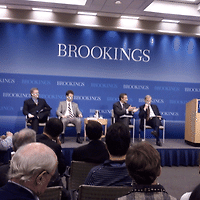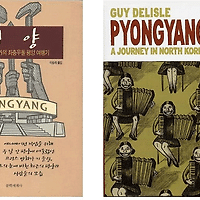The policy of détente and economic cooperation with North Korea.
An interview with Dr. Seliger.
Sven Horak, May 29th, 2009
Institute of East Asian Studies, IN-EAST (www.in-east.de)
Dr. Bernhard Johannes Seliger graduated at the University of Kiel in Germany in economics from where he holds a PhD. His thesis won the Wolfgang-Ritter-Price for extraordinary achievements in economics. He is author and editor of numerous academic publications and gives lectures at Korean and German Universities. He is one of the few German distinguished experts on inter-Korean relations. Since 2002 Dr. Seliger is Representative of the Hans Seidel Foundation based in Seoul. In 2006 Dr. Seliger became honorary citizen of the City of Seoul, awarded by the city mayor, President Lee Myung-bak.
(The interview, conducted in February 2009, is translated from German to English)
Horak: The former Presidents Kim and Roh followed the concept of the so-called „Sunshine Policy“, developed by President Kim. Can the Sunshine policy be regarded as over now?
Dr. Seliger: As buzzword definitely, yes. President Lee Myung-bak just did the opposite initially compared to President Roh in order to distinguish from each other. His election is the result of the people’s decision to a great extent in relation to his idea on how to approach the North in the future too. However, I believe the differences in the policy towards the North are not as drastic as one might assume. What will not happen anymore are the huge contributions in advance that South Korea had made like in the past 10 years. This Situation was criticized by the current government and it’s President. From a historical point of view, I believe, the approach of the former governments can be justified for a certain phase of the relationship. For example, if establishment of trust is a crucial determinant, it was good to provide benefits in advance as South Korea is the more powerful and economically stronger partner. On the other side, it is good that these benefits are stopped meanwhile. Obviously, North Korea hasn’t played according to the rules, neither internationally nor in the inter-Korean context. Certainly, it is better these days to establish a closer relationship based on incentives and results for the inter-Korean affairs or by reforms in North Korea or in the frame of the six-party talks too. As a consequence, three parties in this frame might speak with one voice, South Korea, Japan and the US, two parties might remain neutral, China and Russia and North Korea are urged to react. So far North Korea’s chance to play South Korea and the US off against each other was quite high. Ironically, in the past it was rather South Korea that hindered the US to approach North Korea stricter. Since last year it is just the other side around. However, regarding other contents of the sunshine policy, for instance contact and economic cooperation, I believe the new government just names them differently but contentwise they remain to a certain extent similar. Today, the new policy is certainly more realistic in regard to what can be achieved finally. For example plans to establish further special economic zones could possibly be realized in the very far future but not right away. The Lee administration is generally not at all opposing economic cooperation. If North Korea would introduce reforms, I believe they would receive immediate and massive support from South Korea. The same counts for civil contacts. According to my opinion, the basic attitude for a policy of détente has not changed.
Horak: North Korea closed the boarders to South Korea already on December 1, 2008 and accused South Korea of a political confrontation course. How do you evaluate the actual situation of inner-Korean relations?
Dr. Seliger: The inter-Korean situation is viewed with concern currently. The only cooperation project that remained is the Gaesong project located in the special economic zone Gaesong in North Korea. Other projects, such as tourism projects and other cooperation projects derived from the inter-Korean summit of October 2007 were stopped or not approached at all.
Nevertheless, the situation is not as bad as it eventually appears, I believe. Except the last three month, there is a production increase as well as an increase in employment observed in Gaesong. Unfortunately, there is also a lack of qualified and reliable employees. Currently, there are approximately 30,000 workers employed in Gaesong. Aid shipments from South Korea are expired in fact, but civil contacts have not drastically declined as media coverage might suggest. Therefore, I assume the situation is generally not that bad. North Korea is in a weaker negotiation position, as they are urged to make concessions towards South Korea during this year due to economic reasons. They need to collaborate with the US otherwise they will not receive any aid shipments anymore independent of political conduct. This will impact the six-party talks. If North Korea will cooperate more with the US, they are not able to refrain from the dialogue with South Korea. In addition US aid is much less attractive to North Korea. South Korea is able and is also willing to provide much more resources to North Korea. Even this year South Korea provides approximately a three million Euro to German organizations to support development project. This affirms South Korea’s continuous willingness to cooperate. In this respect I see the inter-Korea relation strained indeed, but the situation is not extremely bad. I see parallels to the change of government in Germany in the year 1982, when the social-liberal coalition was exchanged by the conservative Christian Democratic Party. Initially the new government was not too popular at all. In the long run, this view changed. I believe that also in Korea, contacts on economic side will intensify over the time.
Horak: Which are the most important items both governments shall focus on, on the way to a re-unification?
Dr. Seliger: That is difficult to answer. I would recommend that South Korea should give preference to smaller and more feasible measurements than to visionary projects that are hardly realizable. This can be criticized especially in regard to the inter-Korea summit of October 2007, where huge visions for the future were discussed and agreed, but which were unrealistic and remained not realized finally. One can say this is the fault of the new policy course of the Lee administration, but this is certainly only half the truth. Personally, I’m involved in a project which was decided under President Roh whose administration provided the project funding. Now the North Korean administration says this project cannot proceed under the current political circumstances. Therefore, the current President cannot be blamed. South Korea is willing to realize the projects discussed during the October 2007 summit with North Korea, but not all at once and not at all cost. I believe it is the right approach to focus first on feasible projects.
On which items shall the North Korean administration focus? This question should be answered in the background of their first political priority, which is nothing less than securing the regimes existence and political survival. Generally all cooperation projects are beneficial for North Korea, whether in the area of education or economic development. On the other side, the North is cautious not to open too much, as attraction of South Korea could spread within the country and lead to undesirable effects for the administration. In this regard, I’d like to mention the aggressive reaction of the North on the recent incident at the boarder caused by South Korean civic groups. Insofar the scope of action for North Korea is very limited. So if assumed that the priority of North Korea is a policy of isolation, the current conflict does indeed make it easier to survive politically. Therefore, it is quite difficult to evaluate the situation for North Korea. On the one hand, cooperation projects with the South are beneficial for the North; on the other hand, they represent a serious political threat.
Horak: 감사합니다 and thank you very much for this interview, Dr Seliger.


